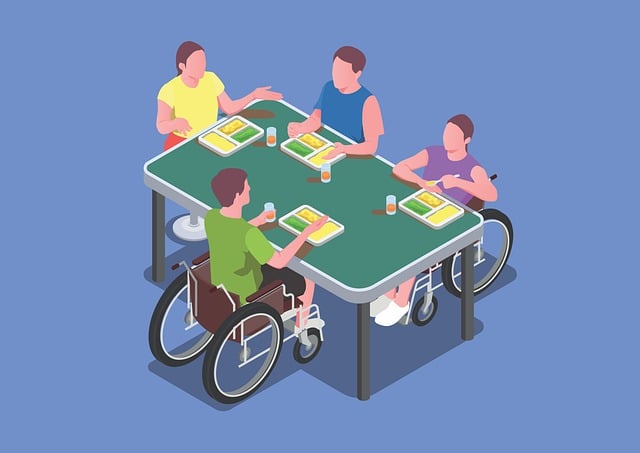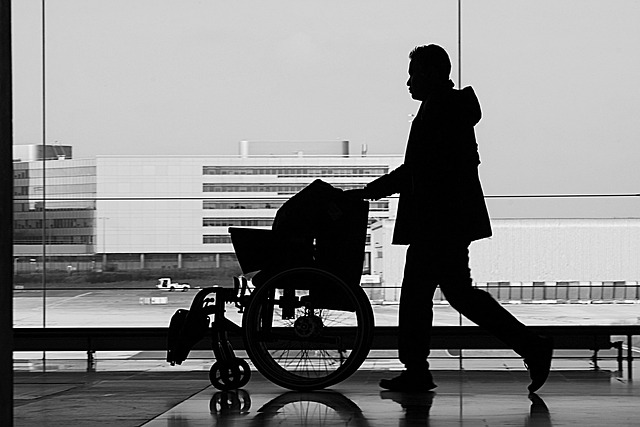Senior transport in Eugene Oregon faces unique challenges due to terrain and limited dedicated services, leading to isolation. The city addresses these issues with expanded paratransit, accessible tech, shared mobility options, and community partnerships. Collaborative initiatives aim to create an inclusive transportation network tailored to seniors' needs for improved independence and access to services.
Eugene, Oregon, faces unique challenges when it comes to senior transportation. With an aging population, ensuring accessible mobility is crucial for maintaining the quality of life among seniors. This article explores the specific transport needs of Eugene’s seniors and delves into the current barriers they encounter within the city. We present innovative solutions and a range of accessible transport options, highlighting community efforts and future strategies to enhance mobility for all. Discover how these initiatives contribute to an inclusive Eugene, addressing senior transport issues head-on.
- Understanding Senior Transport Needs in Eugene Oregon
- Current Challenges Facing Seniors in the City
- Innovative Solutions and Accessible Transportation Options
- Community Efforts and Future Directions for Improvement
Understanding Senior Transport Needs in Eugene Oregon

In Eugene, Oregon, understanding the unique transportation needs of seniors is paramount to ensuring their independence and quality of life. As the population ages, addressing mobility challenges becomes increasingly vital. Many elderly residents may face difficulties navigating the city due to limited mobility, vision or hearing impairments, or reduced cognitive abilities. These factors underscore the importance of accessible transport solutions tailored to their specific requirements.
Senior transport in Eugene Oregon requires a comprehensive approach that considers not just physical accessibility but also the emotional and social aspects of travel. Regular, reliable transportation options that cater to seniors’ needs can significantly improve their ability to access medical care, grocery stores, community events, and social connections, thereby enhancing overall well-being.
Current Challenges Facing Seniors in the City

Seniors in Eugene, Oregon, face unique challenges when it comes to accessible transportation. The city’s diverse landscape includes hilly terrain and a compact urban core, making traditional walking and public transit options more difficult for those with mobility issues. Additionally, limited dedicated services for senior transport in Eugene has led to concerns regarding isolation and reduced access to essential services. Many seniors rely on family members or friends for transportation, which can be problematic when these supports are not readily available.
Current solutions include a mix of community programs and public initiatives. Non-profit organizations offer volunteer ride-sharing services tailored to senior needs, while the city has implemented accessible transit options like low-floor buses and paratransit services with flexible routes. These efforts are crucial in addressing the immediate transport needs of Eugene’s aging population, but there remains a need for further integration and expansion of these services to enhance mobility independence for seniors.
Innovative Solutions and Accessible Transportation Options

Eugene, Oregon, has been making strides in improving accessible transportation for its residents, including seniors, by introducing innovative solutions. One notable initiative is the expansion of paratransit services, offering door-to-door transit for those with disabilities or limited mobility. These specialized vehicles are equipped with features like lower floors and ramp access, ensuring ease of use. Moreover, technology has played a significant role in enhancing accessibility; apps and online booking systems allow users to plan their trips conveniently, providing real-time updates on schedules and routes.
The city also promotes the use of shared mobility options, such as bike-sharing programs and electric scooters, which offer flexible and eco-friendly transportation for seniors who prefer more independent travel. Additionally, community partnerships with local taxi companies provide affordable and accessible taxi services, catering to those who may not be able to drive or use public transit. These diverse transportation alternatives ensure that Eugene’s senior population has several options tailored to their specific needs, contributing to a more inclusive and mobile community.
Community Efforts and Future Directions for Improvement

The accessibility of transportation in Eugene, Oregon, particularly for seniors, has been a topic of growing interest within the community. Local initiatives have taken center stage in addressing this challenge, showcasing the collective spirit and dedication of residents to create a more inclusive environment. These efforts often involve collaborative projects between neighborhood associations, local businesses, and city departments to improve public transit options and facilitate better mobility for seniors.
Looking ahead, there is an increasing focus on implementing innovative solutions like specialized senior transport services, accessible ride-sharing programs, and enhanced pedestrian infrastructure. By leveraging technology, promoting intergenerational dialogue, and fostering partnerships, the community aims to create a seamless and efficient transportation network that caters to the diverse needs of its elderly population. These future directions promise to enhance quality of life for seniors in Eugene, ensuring their continued independence and access to essential services and social connections.
